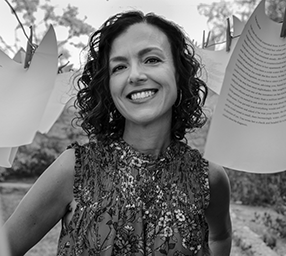You & the Raw Bullets
Why the image just now of a bullet entering the mouth? Why call it raw, when it isn’t sticky and pink like a turkey meatball, just the usual: gold, and shiny, and cylindrical? What about this bullet is uncooked? Why does it multiply with you in parka or short skirt, versions of the you that you were, swallowing raw bullets as you walked? The images come without assailant, without gun, just the holes the bullets opened, the holes through which they went. And now at the age in which you ride enclosed in glass like the Pope or President you are spitting up the bullets slow-simmered in your own juices. You are shitting them out, feeling them drop from you in clumps of blood, in the days of bleeding left. But you cannot expel all of them. Some, raw as the day they entered, have expanded their mushroom heads into the flesh, or lodged their hot tip into the taste center of the brain. Will the tongue’s first encounter with pomegranate seeds be forever a lost Eden, that fruit of your girlhood, which, also meaning grenade, was perhaps never innocent? Do your own raw bullets come back to you, my friends? Let us legislate the active voice, instead. Not, “Many bodies have been used as blanks, aluminum cans.” But, “Here are the men who pulled the trigger, look at them.”
Copyright © 2018 by Rosa Alcalá. Originally published in Poem-a-Day on February 5, 2018, by the Academy of American Poets.

